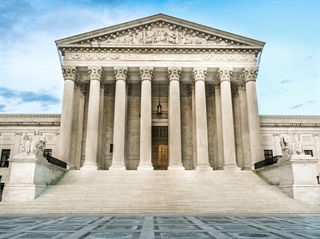
Death of a Justice means continued life for agency fees
Death of a Justice means continued life for agency fees
Practices
 On March 29, 2016, the United States Supreme Court gave organized labor a victory when it deadlocked 4 to 4 in a case that could have significantly impacted the ability of public sector unions to collect agency fees.
On March 29, 2016, the United States Supreme Court gave organized labor a victory when it deadlocked 4 to 4 in a case that could have significantly impacted the ability of public sector unions to collect agency fees.
Agency fees are fees collected from workers who choose not to join and who do not want to pay for collective bargaining activities. Nevertheless, these workers, as members of a bargaining unit, arguably benefit from such activities. The case demonstrates how the death of Justice Antonin Scalia impacts matters pending before the court. The Supreme Court, in a one sentence opinion (Friedrichs v. California Teachers Association, Case No. 14-915 (Mar. 29, 2016)), affirmed the judgment of the Court of Appeals for the Ninth Circuit.
The Ninth Circuit upheld the concept of agency fees, finding itself bound by a prior Supreme Court precedent (Abood v. Detroit Board of Education, 431 U.S. 209 (1977)) that upheld “agency” or “fair share” fees against constitutional challenge. The Friedrichs case went to the Ninth Circuit to test that precedent. According to the Ninth Circuit, it had to follow precedent and only the Supreme Court could revisit that prior ruling.
Justice Scalia’s death prevented what would most likely have been a five-to-four decision overruling Abood and a declaration that it would be unconstitutional for unions representing government employees to charge fees to workers they represent but who are not members of the union. Under such a ruling, the challenge to agency fees would have applied despite the fact that the disputed fees cover only the cost of union bargaining over working conditions and not lobbying or other political advocacy.
In Wisconsin, 2011 Wisconsin Act 10 essentially wiped out fair share fees for public unions, creating what unions call the “free rider” problem—when non-union employees in a bargaining unit enjoy the benefits of a union’s collective bargaining without having to share in the costs. The ruling will not mean much here as public sector collective bargaining for most public employees in Wisconsin was reduced to bargaining only over base wage adjustments, and even that is limited by Consumer Price Index (CPI) factors.
A Petition for Rehearing of the Friedrichs case is expected.
